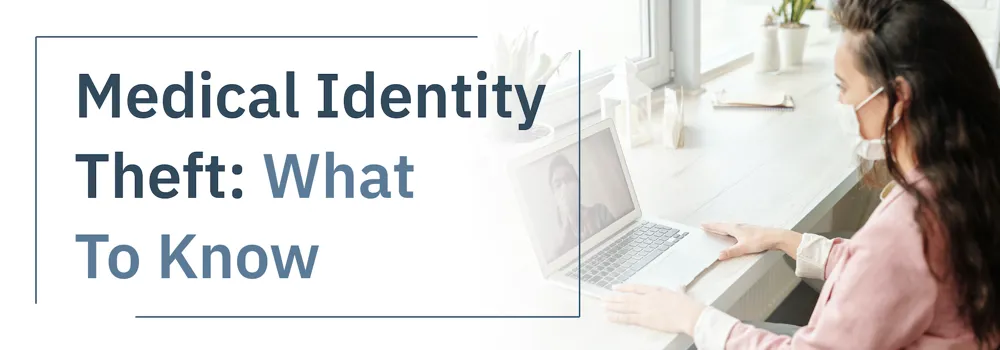Group legal insurance plans are one of the fastest growing employer benefits.

Medical Identity Theft: What to Know
Medical Identity Theft: What to Know
The pandemic has given rise to several advancements in digital health solutions. Patients have access to doctors at their fingertips and can consult about health concerns virtually anywhere they have a webcam and an internet connection. The surge in telemedicine is certainly notable, but its quick development and widespread use are of great interest to thieves.
At the height of the pandemic, IBM Security X-force reported ransomware as the number one threat to the healthcare industry. Hackers broke into the data systems of hospitals, urgent care offices, and now vaccine centers, to acquire sensitive patient information, and subsequently, commit fraud. In addition, and pre-COVID, the FTC recorded a 101% increase in medical identity theft claims in 2019 over 2018, with the highest saturation of incidents occurring in California, Florida, Illinois, New York, and Texas.
Patient portals are flush with details thieves can use to commit a variety of thefts including identity, financial, and medical. You become a victim of medical identity theft, or healthcare fraud, when a thief undergoes treatment, receives medication, or files insurance claims using your name. They can commit the fraud by accessing and using the social security number, insurance policy number, mailing address, and other PII listed in your online patient portal.
Healthcare fraud can have lasting impacts on its victims. The damage to the victim’s credit is typically the most harmful and difficult to undo. Say a thief undergoes a surgery claiming to be you. That surgery, after applicable insurance is deducted, must be paid for. Debt collectors then contact you; and when it comes to outstanding medical bills, the primary concern is recovering payment, not recovering the fraud itself.
Your attorney can send a written letter to debt collectors to stop the harassment calls and e-mails, but a police report must be filed as well to get the claims process started. It can then take months, or even years, to recover the victim’s losses and rebuild damaged credit.
In addition to filing a police report, there are several other actions you should take in the event you are wronged by medical identity theft:
Contact your health care providers. The number of healthcare facilities that have access to your charts, treatments, and medical history is astounding. Think of all the referrals made between your primary care doctor to an orthopedic surgeon, or between your ophthalmologist and a retina specialist, for example. Contact all relevant parties to obtain copies of your records.
Report errors in your medical records to your health care providers. Your provider is then obligated to fix the mistake. Note: this process, like financial recovery, takes time.
Review your credit report for erroneous debts, too.
Now that all parties have been notified, errors have been identified, and the police report has been filed, consider freezing your credit and updating your files to have a clean slate and organized paper trail with which to follow your thief until they have been held accountable.





